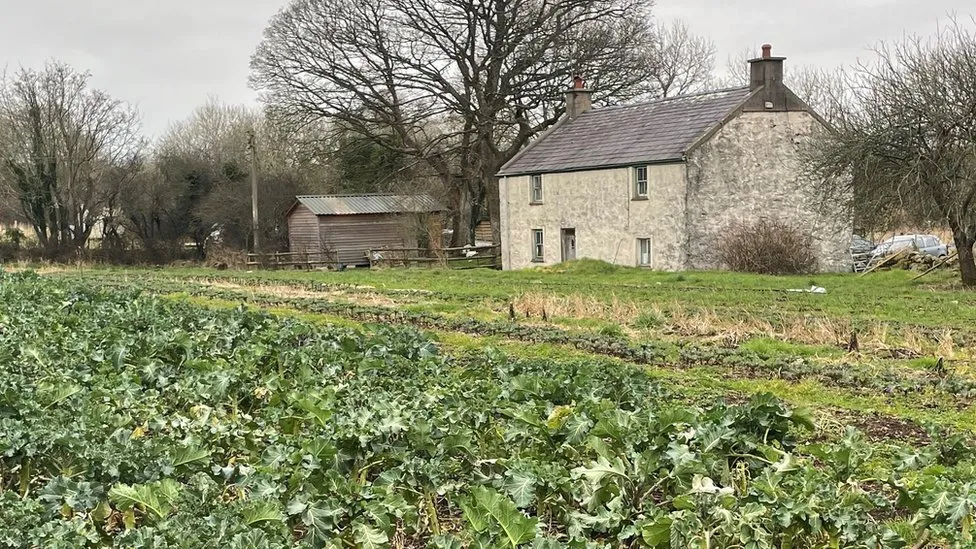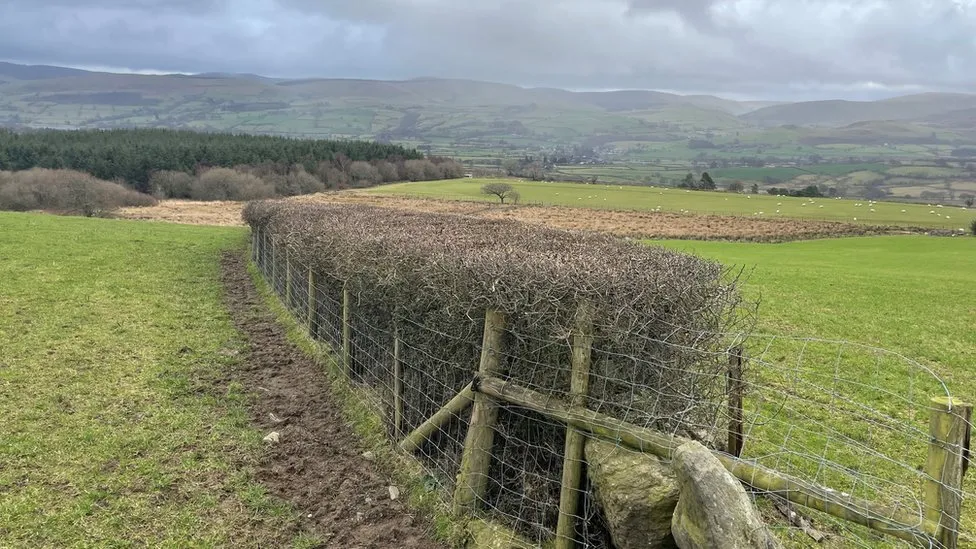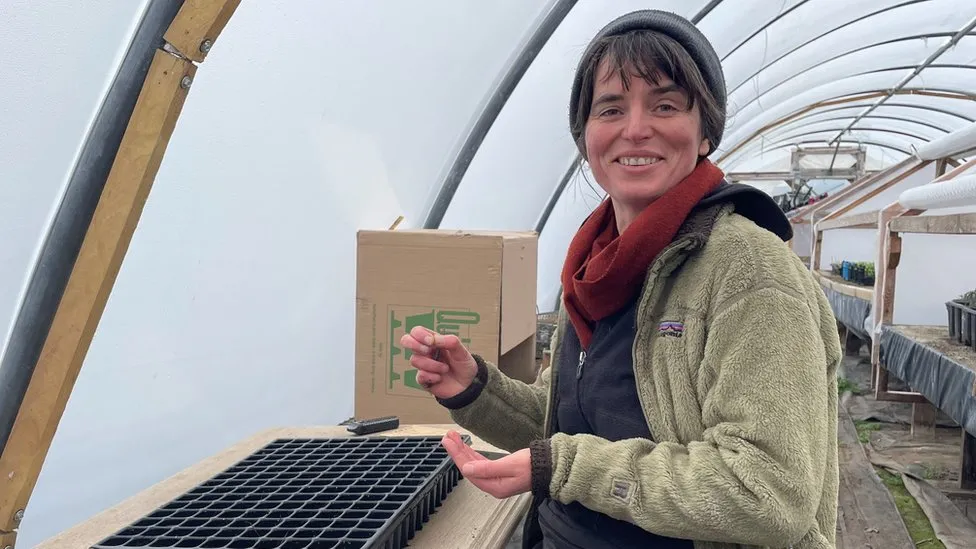
A co-operative that sells food to local families could help form a template to make farming in Wales greener.
Tyddyn Teg, near Caernarfon, in Gwynedd, grows organic veg for the community and tries to be environmentally friendly.
It does not use pesticides, which it says helps biodiversity to thrive.
It comes as a new bill is to be debated by the Welsh Parliament on Tuesday that could transform how farming operates in Wales.
Each week Tyddyn Teg sells 170 boxes of food to local families.
The farm shop sells homemade bread and food from other producers.
- Welsh ‘Amazon forest’ at risk from solar farm plan – campaigners
- The farmer making vodka from sheep milk
- Welsh farmers to be paid more for protecting nature
The farm’s Sally Mees said it was useful for people to know where their food had come from.
The 44-year-old said: “The customers, they can see we’re harvesting vegetables straight out of the ground into the shop.”
Ms Mees, who manages the plant nursery, said only a small part of the land was farmed.
“The rest of it is wetland, woodland, and it’s teeming with life,” she said.
The co-op’s Aglaé Bindi, 31 and originally from France, manages the accounts and shop.
Reducing the use of machines and using more people to farm, she said, was “a big challenge”.
“We have to be careful where we’re spending, and we actually sometimes financially struggle a little bit,” the mum-of-one said.
“To answer these challenges we have to have more of these places, so I think encouraging them is a good thing, but it starts with acknowledging that the ones doing it at the moment are struggling.
Before Brexit, farming policy was decided in Brussels under the Common Agricultural Policy.
It rewarded landowners for the amount of land they had, regardless of how it was farmed.
The Welsh government’s new Agriculture Bill, the first designed specifically to meet Wales’ needs, could herald a change in the way Wales is farmed – with more emphasis on farming sustainably rather than on maximising food production.

Currently the bill wants farmers to “maintain and enhance” the environment and biodiversity to qualify for subsidies.
The World Wide Fund for Nature Cymru (WWF) wants the Welsh government to go further.
WWF Cymru said the bill should aim to “restore” the natural environment, in line with the ambitions of last year’s COP15 conference in Montreal.
WWF Cymru’s Alex Phillips said: “The time has come to include that directly in Welsh legislation to make sure that this new act is as strong as possible.”
Farming unions said environmental sustainability was dependent on economic sustainability.
Fourth generation hill farmer Rhodri Jones farms native breeds of cows and sheep in Llanuwchllyn, in Gwynedd.
For 30 years his farm, called Brynllech, has been involved in environmental projects.
The latest is Glastir, a Welsh government scheme that reimburses farmers for farming less intensively.
A mountain on the farm is not grazed as it’s an area of scientific special interest and the hedges are wide to encourage birds.

“There’s a lot of work that’s gone into these environmental schemes and we want to continue to do that and enhance what’s here,” Mr Jones, 45, said.
But sustainability and viability, he said, go hand in hand.
“We are committed to the net-zero policy but at the end of the day we have to continue to produce the wonderful food we produce for the country,” Mr Jones said.
“It has to be sustainable environmentally and financially.
“Otherwise, we won’t be here and there’ll be nobody here to look after what we’ve got.”
Funding from Glastir is to cease at the end of this year but the new Sustainable Farming Scheme, part of the Agriculture Bill, is not due to come into effect until spring 2025.
NFU Cymru warned work carried out over three decades was at risk because the Welsh government had not committed to extending Glastir until then.
Chairman of its rural affairs board, Hedd Pugh, said: “(Farmers) could be forced to put more stock back on the mountains, or to open up the gates around areas where trees have been planted.
“The farms have got to be viable, and it is so important the Welsh government realise that. There must be a payment and the Glastir scheme (should carry) on until the new scheme starts in 2025.”

The Welsh government said: “Our first ever Welsh Agriculture Bill paves the way for ambitious and transformational legislation to support farmers, sustainable food production, and to conserve and enhance the Welsh countryside, culture and language.
“One of the objectives of the Bill is to maintain and enhance the resilience of ecosystems and the benefits they provide. This aligns with the objective of the Environment (Wales) Act.”
It said Glastir would continue to December 2023 and future support of the scheme was being considered.
Stability payments, it said, would be a feature of the Sustainable Farming Scheme throughout and beyond the current Senedd term.
Source BBC



